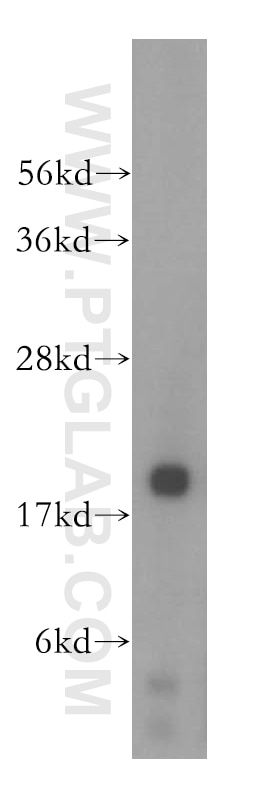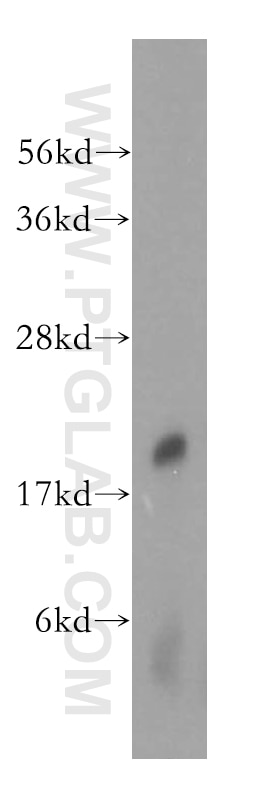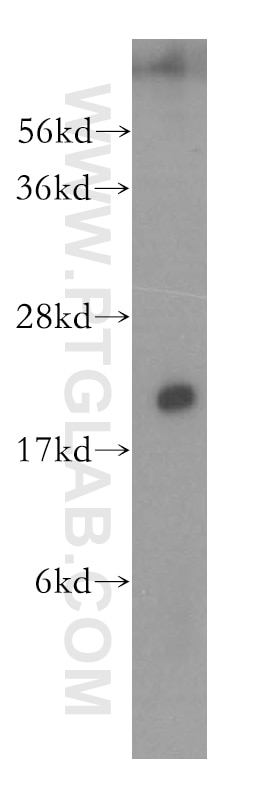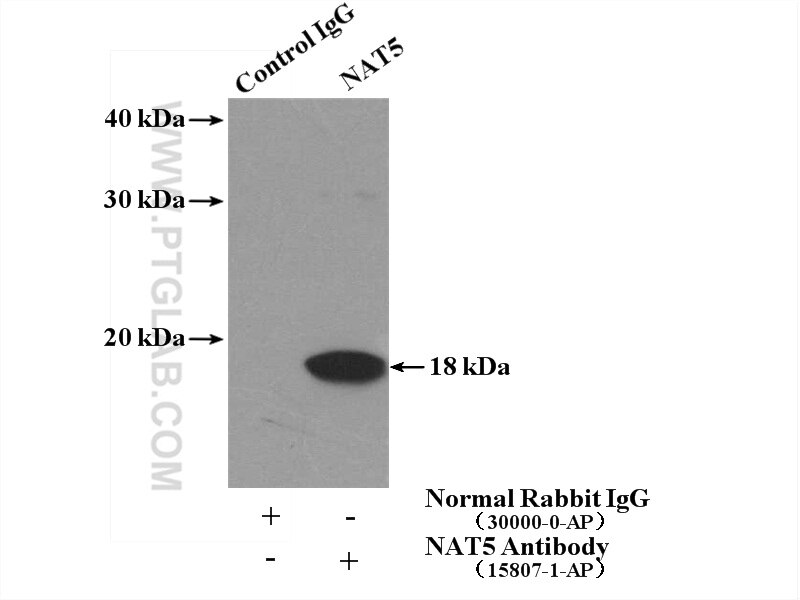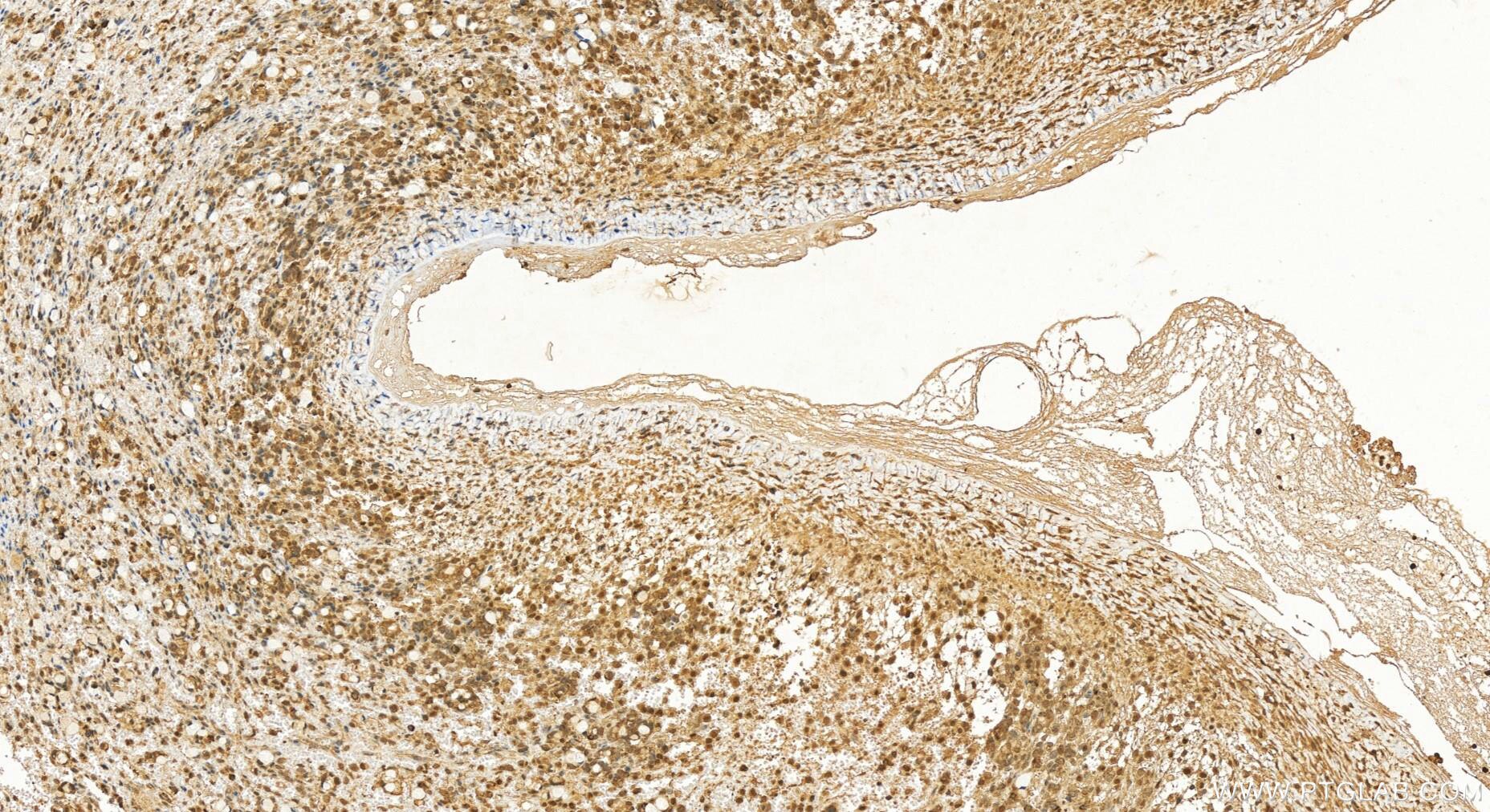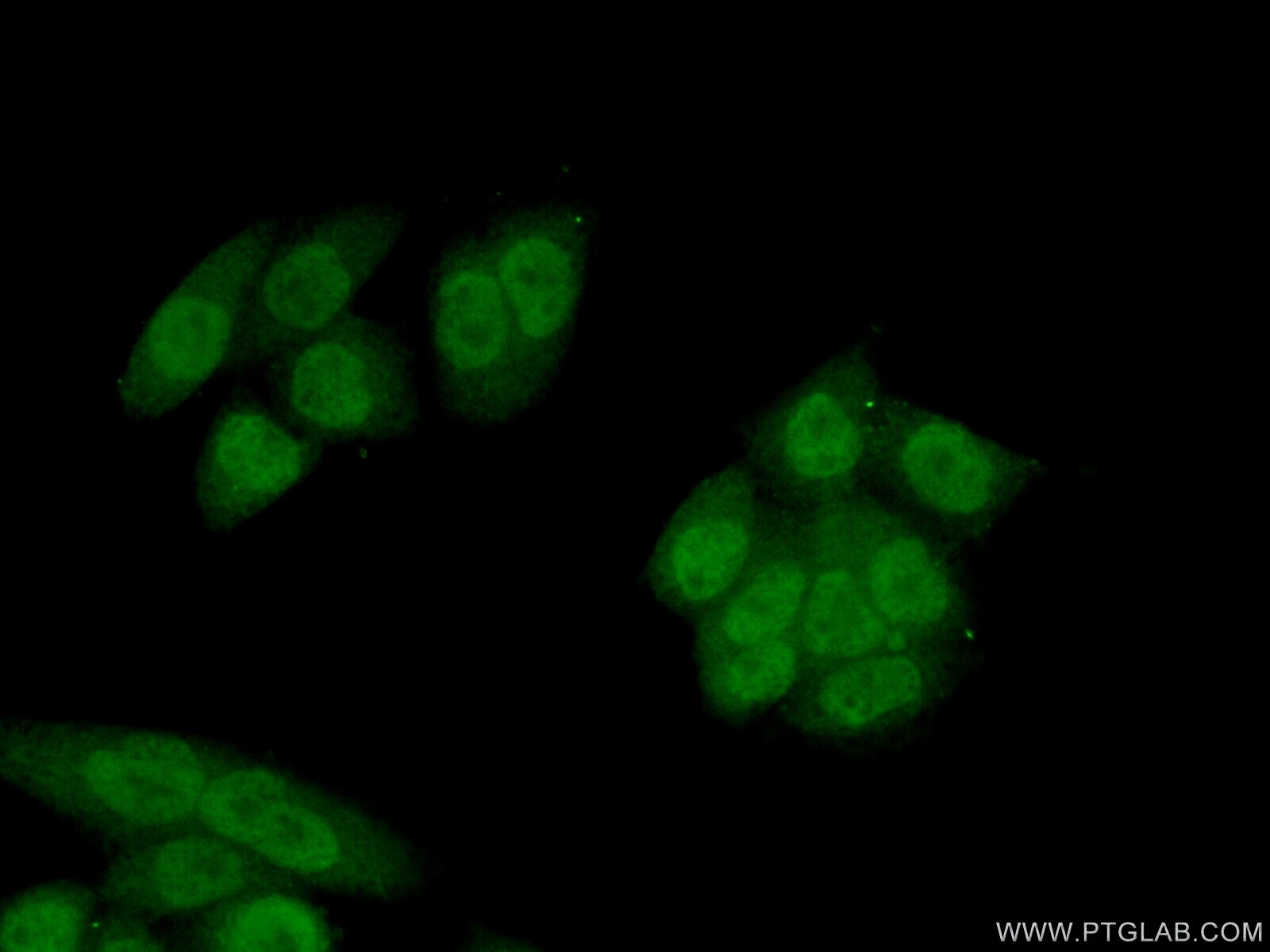Validation Data Gallery
Tested Applications
| Positive WB detected in | HeLa cells, HL-60 cells, human brain tissue |
| Positive IP detected in | HL-60 cells |
| Positive IHC detected in | human ovary cancer tissue Note: suggested antigen retrieval with TE buffer pH 9.0; (*) Alternatively, antigen retrieval may be performed with citrate buffer pH 6.0 |
| Positive IF/ICC detected in | HeLa cells |
Recommended dilution
| Application | Dilution |
|---|---|
| Western Blot (WB) | WB : 1:500-1:3000 |
| Immunoprecipitation (IP) | IP : 0.5-4.0 ug for 1.0-3.0 mg of total protein lysate |
| Immunohistochemistry (IHC) | IHC : 1:50-1:500 |
| Immunofluorescence (IF)/ICC | IF/ICC : 1:50-1:500 |
| It is recommended that this reagent should be titrated in each testing system to obtain optimal results. | |
| Sample-dependent, Check data in validation data gallery. | |
Published Applications
| WB | See 2 publications below |
Product Information
15807-1-AP targets NAT5 in WB, IHC, IF/ICC, IP, ELISA applications and shows reactivity with human, mouse, rat samples.
| Tested Reactivity | human, mouse, rat |
| Cited Reactivity | human, mouse |
| Host / Isotype | Rabbit / IgG |
| Class | Polyclonal |
| Type | Antibody |
| Immunogen |
CatNo: Ag8541 Product name: Recombinant human NAT5 protein Source: e coli.-derived, PGEX-4T Tag: GST Domain: 1-178 aa of BC005181 Sequence: MTTLRAFTCDDLFRFNNINLDPLTETYGIPFYLQYLAHWPEYFIVAEAPGGELMGYIMGKAEGSVAREEWHGHVTALSVAPEFRRLGLAAKLMELLEEISERKGGFFVDLFVRVSNQVAVNMYKQLGYSVYRTVIEYYSASNGEPDEDAYDMRKALSRDTEKKSIIPLPHPVRPEDIE 相同性解析による交差性が予測される生物種 |
| Full Name | N-acetyltransferase 5 (GCN5-related, putative) |
| Calculated molecular weight | 178 aa, 20 kDa |
| Observed molecular weight | 18-20 kDa |
| GenBank accession number | BC005181 |
| Gene Symbol | NAT5 |
| Gene ID (NCBI) | 51126 |
| RRID | AB_1640056 |
| Conjugate | Unconjugated |
| Form | |
| Form | Liquid |
| Purification Method | Antigen affinity purification |
| UNIPROT ID | P61599 |
| Storage Buffer | PBS with 0.02% sodium azide and 50% glycerol{{ptg:BufferTemp}}7.3 |
| Storage Conditions | Store at -20°C. Stable for one year after shipment. Aliquoting is unnecessary for -20oC storage. |
Protocols
| Product Specific Protocols | |
|---|---|
| IF protocol for NAT5 antibody 15807-1-AP | Download protocol |
| IHC protocol for NAT5 antibody 15807-1-AP | Download protocol |
| IP protocol for NAT5 antibody 15807-1-AP | Download protocol |
| WB protocol for NAT5 antibody 15807-1-AP | Download protocol |
| Standard Protocols | |
|---|---|
| Click here to view our Standard Protocols |
Publications
| Species | Application | Title |
|---|---|---|
Int J Mol Sci NatB Catalytic Subunit Depletion Disrupts DNA Replication Initiation Leading to Senescence in MEFs | ||
Oncotarget NatB-mediated protein N-α-terminal acetylation is a potential therapeutic target in hepatocellular carcinoma. | ||
Mol Cell Biol NatB Protects Procaspase-8 from UBR4-Mediated Degradation and Is Required for Full Induction of the Extrinsic Apoptosis Pathway |

